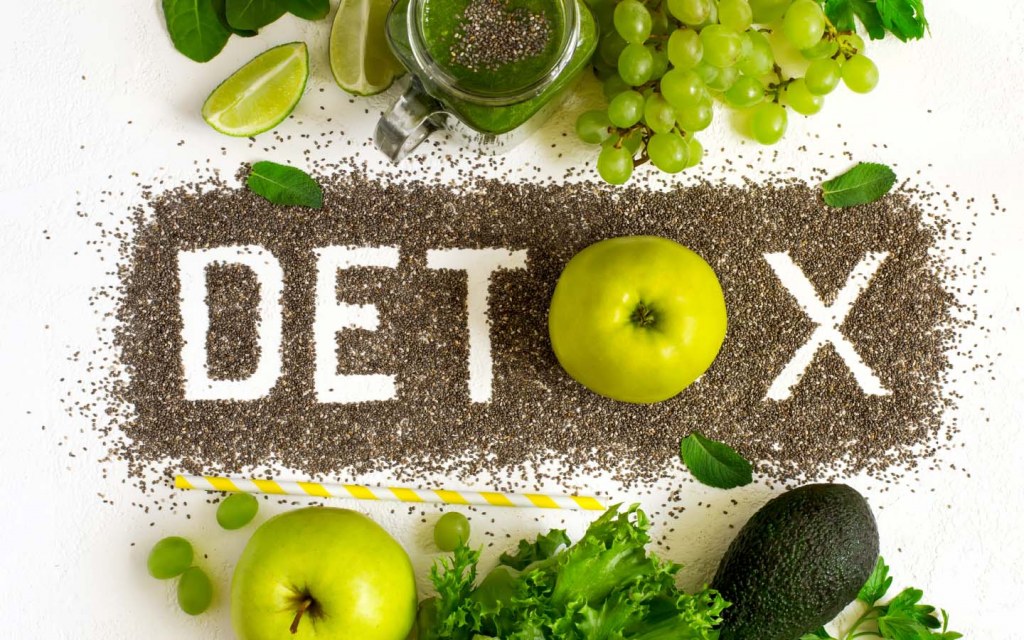Ramadan was ordained upon Muslims over a century ago. But only recently, scientists are beginning to understand the spiritual as well as physical benefits of Ramadan or fasting. There are unlimited benefits of Ramadan. Fasting combats a wide range of illnesses as well as prevents high cholesterol and heart diseases. Our body goes through a thorough detox in Ramadan to flush out toxins and promote natural healing.
Every year, over one billion Muslims across the world fast for Ramadan. Apart from being a spiritual detox, fasting also helps you lose weight, the natural way. When we eat less and consume fewer but healthier meals, the human body goes into a Ramadan detox mode.
How Fasting helps you Lose Weight in Ramadan
When we are fasting, glycogen which is our body’s main energy source, is turned off. Our body produces glycogen when we consume carbs, but in its absence, the body turns to fat reserves for burning energy.
Naturally, this helps the body shed extra pounds and regulates blood pressure. In fact, fasting for just three or four days leaves a positive impact on the body. Just imagine the effects of fasting for an entire month which leads to an influx of new white blood cells, strengthening the immunity.
Studies reveal that people who fast in Ramadan have lower levels of cholesterol. Since bad cholesterol is a major cause of several heart diseases and obesity, fasting is a great remedy for boosting your overall health.
Intermittent Fasting: A Popular Fasting Technique
Stress, late night work shifts, and substance abuse allow toxins to accumulate in our body. These harmful elements contribute to higher cholesterol levels and weight gain but they also trigger several types of autoimmune diseases.
It is not surprising to see that intermittent fasting is becoming popular in the contemporary world to combat toxins. There are many types of intermittent fasting techniques. One such method is the 5:2 diet. In this type of fasting technique, people follow a normal diet for five days of the week. However, they restrict their food intake to only 500-600 calories for the rest of the two days. This technique is much like the Sunnah where we are encouraged to fast every Thursday and Monday.

Benefits of Ramadan
Looking at our hectic lifestyle and poor dietary choices, we can promote a healthy detox in Ramadan by sticking to a nutritious diet.
Leptin is a hormone which is secreted by fat cells. Its job is to signal the brain to speed up metabolism and burn fat. But when you are experiencing leptin resistance, the brain becomes resistant to this message. The body gets into a constant state of starvation and the net result is chronic hunger. This state prevents you to lose weight. However, fasting regulates both leptin and insulin resistance to help us fight constant cravings and lose weight in Ramadan.
Now that Ramadan is approaching, all of us should stick to healthy eating. As fasting and praying encourage relaxation, it is natural for you to feel more at peace during the holy month.
Stages of Detoxification
Let’s study the stages of detoxification which can help you combat inflammation and lose weight in Ramadan.
Stage 1 (Day 1 and Day 2)
During the first couple of days of fasting, your blood sugar level drops and your blood pressure and heart-rate reduce. As glycogen is pulled from the muscles, you experience some weakness. This is the first stage of detoxification and probably the most difficult. This wave of cleansing usually causes dizziness, nausea, and headaches. You experience a few other symptoms such as a coated tongue and bad breath. Hunger is the most intense during this period.
Stage 2 (Day 3 to Day 7)
As you continue to fast; fats, which comprise of fatty acids, disintegrate to release glycerol from the glyceride molecules and convert into glucose. Your skin become oily as rancid oils purge from your body. If you are prone to acne, you may experience a boil or a few pimples here and there.

As your body begins to embrace the changes, your digestive tract takes a much-needed break and your body focuses on healing and detoxifying. One of the best benefits of Ramadan is that your immunity and digestive tract are strengthened. The body flushes out toxins to help you lose weight in Ramadan.
Stage 3 (Day 8 to Day 15)
During this stage, you experience more energy and you are able to focus better. But some people who have experienced injuries in the past, may complain of pain and discomfort. For instance, if you broke your leg a decade ago, there must be scar tissue around the affected area. Your body’s ability to heal is directly related to your lifestyle. Hence, the natural healing capabilities of your body are compromised if you rely more on a junk food diet.
During fasting, your body scours for any damaged tissue, and the lymphocytes make their way into the damaged tissue. It secretes substances to disband the damaged cells. That’s one of the reasons why some people complain of aching joints during Ramadan.
The substances irritate the nerves in the surrounding area and lead to a recurrence of pain from all previously injured areas. Don’t worry as this pain only signifies that the healing process is in progress.

Your muscles may become sore and tight owing to toxin irritation. Your legs are usually affected the most since toxins typically accumulate in the leg area. Due to excessive bacteria in the mouth, you can also experience cankers when undergoing detox in Ramadan.
The purpose of Ramadan detox is to get rid of all harmful compounds and elements which lead to inflammation and obesity. If you want to stay fit and active while fasting, here are a few natural ways to overcome fasting fatigue.
Stage 4 (Day 16 to Day 30)
During the final stage, the body adapts to the fasting process and you enjoy clarity of mind and more energy. Typically, cleansing periods are short with several days of feeling good in between. When your breath is fresh and your tongue is pink, it usually means that the healing of your organs is completed.
Memory and concentration improve significantly after day 20. You achieve an impressive emotional balance. Your body works at its maximum capacity to repair and replace damaged tissues.
Happy Fasting!
There are many benefits of Ramadan which are not limited to physical well-being. Fasting is a great opportunity to cleanse the body, mind, and soul. By practicing self-control, we can detox in Ramadan and reduce the production of stress hormones to live a fit life. That’s one of the reasons why most of us find it easier to practice healthy eating after Ramadan.



